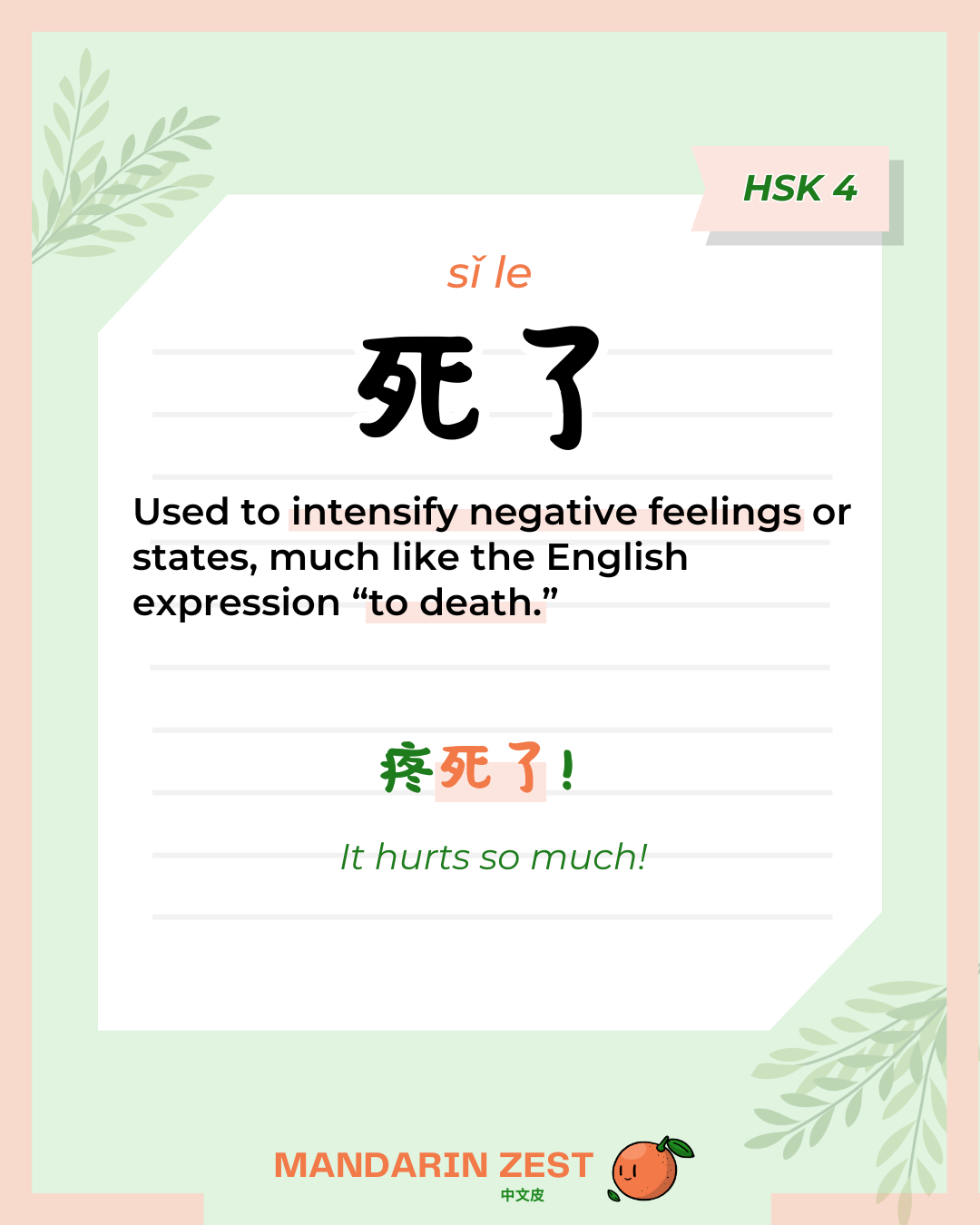The expression 死了 (sǐ le) in Chinese is used to intensify negative feelings or states, much like the English expression “to death.” It’s a colloquial and dramatic way to express how extreme something feels.
死了 literally means “died,” but when used after an adjective, it doesn’t mean someone actually died. Instead, it functions like saying:
“...to death”
“so... I could die”
“extremely... (in a bad way)”
Structure: Adjective + 死了
Sample Sentences
累死了!I'm exhausted!
烦死了!I'm so annoyed!
饿死了!I'm starving!
In a Text
昨天我们去爬山,结果累死了!太阳特别大,热死了,我背的水又不够,渴死了。
后来下山的时候还迷路了,大家都急死了。幸好最后手机还有信号,不然真的惨死了。
回到家以后,我一头倒在床上,困死了,连晚饭都没吃就睡着了。
迷路 (mí lù): to get lost
信号 (xìnhào): signal (e.g., phone signal or reception)
Yesterday we went hiking, and we were exhausted to death! The sun was blazing—it was unbearably hot, and I didn’t bring enough water, so I was dying of thirst.
Later, we even got lost on the way down. Everyone was super anxious. Fortunately, there was still phone signal; otherwise, it would have been a total disaster.
After getting home, I collapsed onto my bed, completely wiped out, and fell asleep without even eating dinner.




